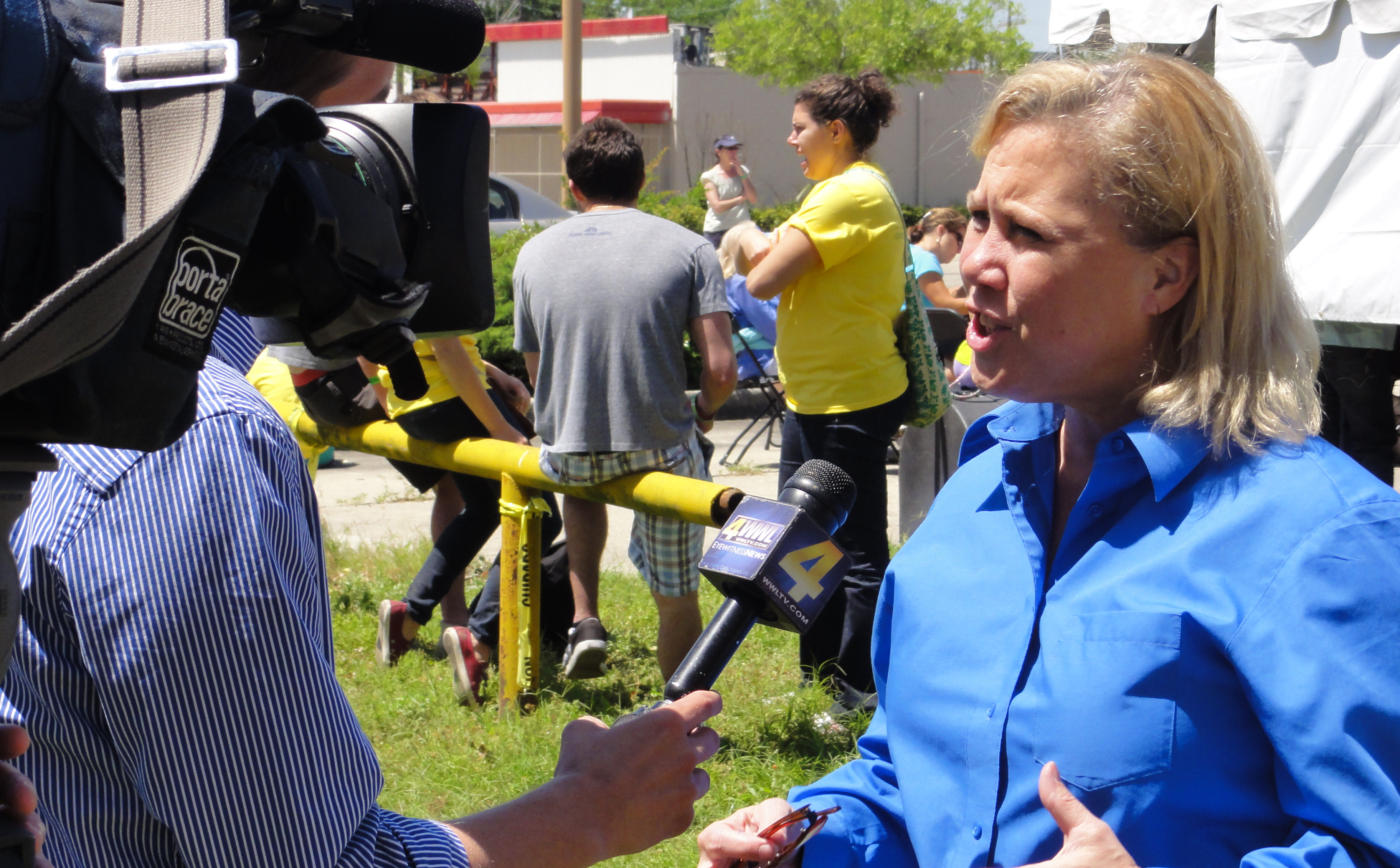On the surface, Senator Mary Landrieu seems to have all the strengths needed to survive as a Democrat in a red state: long experience in the Senate, the support of business interests and a storied family name. Her decades-old political machine, which has propelled her to victory after victory, is one of her greatest assets. Landrieu’s close ties to business prevent her opponents from attacking her record on the economy, as the distance between her policies and theirs is small compared to the usual chasm that now separates adherents to the country’s main parties. Finally, Landrieu comes from a family of powerful Democrats who have all served in office, including her brother, the popular mayor of New Orleans. But this fall, Landrieu will have to fight tooth-and-nail to keep her Senate seat against a barrage of conservative Republicans.
And she has to do it in one of the toughest political institutions in the country, Louisiana’s “jungle primary.” All signs point to an incredibly close election, and Landrieu’s vulnerability is a big risk for the Democrats. If the race drags on through December, as it likely will, it could determine which party ends up with control of the Senate.
A seemingly anachronistic bipartisan in a highly polarized Senate, Mary Landrieu has, and just about lives up to, a reputation as one of the most conservative politicians in the Democratic Party. Staunchly pro-business, she’s one of the few Democrats in either chamber of Congress to receive an endorsement from the United States Chamber of Commerce. Chairperson of the Senate Committee on Energy and Natural Resources, Landrieu has a deserved reputation as a pro-drilling, pro-business politician — a reputation that goes a long way in Louisiana.
Despite her conservative reputation, however, Landrieu has voted with President Barack Obama on 90 percent of legislation (a strong indication of the distance between the two parties in this day and age) since the latter ascended to the White House. Originally an opponent of the Affordable Care Act, Mary Landrieu changed her mind after learning Louisiana could pull in hundreds of millions of dollars of federal money for the state’s Medicaid program. In light of her flip-flopping support for the President’s healthcare reform, a heated race is guaranteed. Her backing drew the ire of Louisiana conservatives, some of whom had previously looked favorably on her. Glenn Beck went so far as to jeer that “we know you’re hookin’, but you’re just not cheap,” and to call her “a high-class prostitute.” Her campaign has also charged many of her flights to fundraisers to her work account, causing a slight scandal ending with her reimbursing taxpayers to avoid further damage to her reputation.
Her strongest opponents are Representative Bill Cassidy (R-LA) and retired Air Force Colonel Rob Maness. But Cassidy and Maness are not the only hurdles Landrieu has to jump: The incumbent is also battling Louisiana’s distinct electoral institutions. Louisiana uses a “nonpartisan blanket,” or “jungle,” primary system. Under this system, candidates representing every political party run against each other simultaneously, and if no candidate manages to eke out a majority, then the two candidates with the highest vote tallies run against each other in a second-round run-off election. As such, the second round could see a Republican or a Democrat facing off against someone from the same party.
Jungle primaries used to be unconstitutional due to their length and the lateness of the final round. However, after pushing the system earlier in the election season, they’ve been allowed to proceed in Louisiana. Having to fend off multiple challengers from varying parties until the time of the regular midterm election, the two leading candidates must then campaign for an extra month — until late November or even mid-December. This unusual length has typically meant a much nastier process — an aspect that lends itself readily to the institution’s aggressive moniker. Even so, in recent elections Louisiana’s growing political polarization has exacerbated the nastiness of these already cutthroat campaigns.
Polls so far have suggested this will be one of the tightest races in Landrieu’s electoral history. According to the Washington Post, Landrieu still commands a plurality, even against all her Republican opponents combined. But indicators point to Landrieu being forced into the runoff that is a key part of the “jungle primary” system.
Her most likely opponent in this second round would be Representative Bill Cassidy. Cassidy is an establishment Republican who is, for the most part, pro-business and falls squarely into the Republican mold. He limits his rhetoric on healthcare, but takes strong stances on the Second Amendment and some immigration issues. Pollsters currently estimate that Cassidy has a 60 percent chance of beating Landrieu in a direct election — not exactly long odds.

Republican chances for winning may seem good, but Cassidy isn’t quite the cookie-cutter candidate, as the news recently broke that the congressman’s daughter is the subject of a premarital pregnancy. Cassidy’s managed to hold steady in the polls, and he’s still expected to make it to the runoff, but this scandal could open him up for attack on two fronts: His far-right opponents would jump at the chance to lambast him for immorality, while his opponents on the left might call him out for hypocrisy due to Cassidy’s stance as a vigorous opponent of premarital sex.
Even more worrying for Cassidy is that his main opponent on the right, retired Air Force Colonel Rob Maness, has marshaled the support of Sarah Palin and many Tea Party groups, threatening to pull more voters and resources away from the embattled Representative. Maness is a Tea Party Republican who wants to get rid of the Department of Education and is a vocal opponent of the Export-Import Bank — an institution whose 80-year old charter is up for renewal next month. Already, pressure from the far right has begun to hurt Cassidy, as Maness has demanded he take a stronger stance on immigration and carve out a stern position on the renewal of the Export-Import Bank. Tea Party groups have tended to align themselves strongly against the bank, as they believe it supports the outsourcing of jobs and distorts the ideas of the free market. Cassidy has not yet defined a strong stance although, he did once vote to renew it. Landrieu, meanwhile, is a vocal supporter of the Bank and is using the issue to bludgeon Cassidy on his attitude towards business and job-creation.
Right now, Republicans are settling into formerly-Democratic Senate seats across the country. But in Louisiana, the sheer number of Republican candidates threatens to overwhelm the voter base. And as the scandal-plagued and inconsistent Bill Cassidy quivers in the face of an archconservative onslaught, the sheer number of far-right candidates makes it considerably easier for Landrieu, who has admittedly pulled herself further left in recent years, to defeat a swathe of Republicans in one of the most conservative states in America. Despite this advantage — not to mention the other assets at her disposal — Landrieu is not out of the woods yet. If the race is indeed set to go to a runoff primary, there won’t be a clear victor until December. In that case, the rumble in the jungle might be just getting started.
